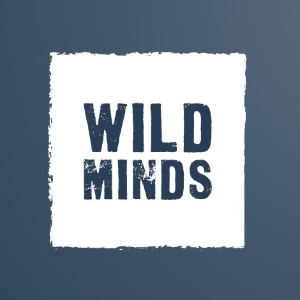Wild Minds Weekly: How many chickens got cancer?
Hello beautiful people,
We spent last weekend volunteering on an organic permaculture farm called @thepatchorganics, in a lively town in New South Wales called Bellingen.
As we sat down for a coffee break after a morning spent burying a bull head (for compost) and rebalancing the microbiome of the soil, Luigi told us a story about their chicken enterprise.
Towards the end of February, Australia got hit with cyclone Alfred. Bellingen, being near a river, gets flooded in during periods of heavy rain. In fact, as I write this, we’ve just managed to escape before the rain turns it into an island again.
During cyclone Alfred, The Patch Organics had issues getting their organic chicken feed delivered, so they had to make do with conventional feed. Naturally, they only bought the highest quality conventional feed.
What happens next probably won’t surprise many of you, but it does highlight the importance of what we’re doing - building food security that provides food that humans can thrive off.
So let’s run the numbers:
200 chickens being raised on an 8 weeks cycle.
They eat 1000kg of feed over that period.
Because of the supply issues, @thepatchorganics had to substitute their organic feed for the conventional one comprised of all-natural ingredients.
So 60kg of conventional feed…
They ate this for only 3 days out of their 8 week cycle…
How many do you think ended up with cancer?
3.
1.5% of the 200 chickens ended up with cancer after eating the conventional feed for only 3 days.
To put things in perspective, while the chickens were on a full certified organic diet, the number of chickens that got cancer was 0.
This wasn’t a large-scale scientific study, it was a boots-on-the-ground observation from a couple that pays close attention to the food they produce and consume.
And what does it tell us?
Even the highest quality conventional food, still resulted in cancer of chickens that were otherwise raised with the best methods.
That means that all the chicken that you see in the supermarket that’s not organic, is at best, getting fed feed that increases its risk of cancer.
You can guess where that ends up.
So what can you do?
Really, you have two options.
If you care about your family’s health, you need to be buying from your local farmer. If you can’t ask your farmer about your food, you don’t know what you’re getting.
If you can’t access a local farmer, then that’s your cue to start farming yourself, and build food sovereignty for your community (we have a resource you'll like).
That’s all for today.
If you’re ever in Bellingen, give Nidya and Luigi a shout @thepatchorganics
To your freedom, independence, and good health,
Rob
Wild Minds Community
PS.
Ready to build real sovereignty?
👉Click here for The Path to Freedom

